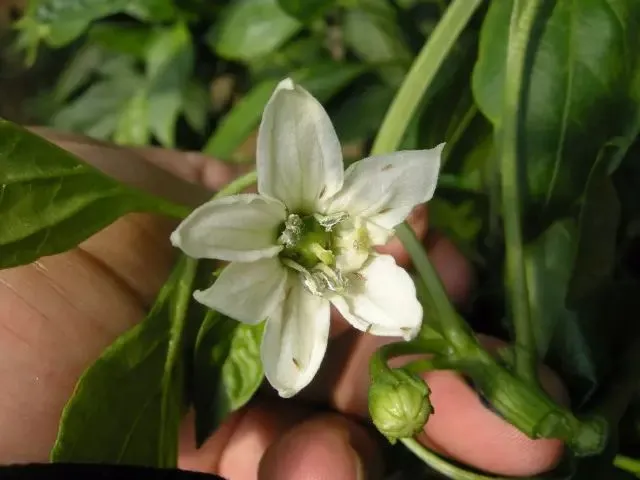
نومبر . 05, 2024 01:03 Back to list
imidacloprid cas number supplier
Imidacloprid Understanding the Supplier Landscape
Imidacloprid is a widely used insecticide belonging to the neonicotinoid class, which targets the nervous system of insects. Its efficacy against a broad spectrum of pests makes it a popular choice among agricultural and horticultural professionals. As the demand for imidacloprid continues to grow, so does the importance of understanding its suppliers, CAS number, and the implications of its usage.
The CAS Number
Imidacloprid is identified by the Chemical Abstracts Service (CAS) number 138261-41-3. This unique identifier is essential for researchers, suppliers, and users to accurately identify the chemical across various platforms, including regulatory bodies, databases, and chemical catalogues. The CAS number helps in ensuring compliance with safety regulations and provides a means for tracking the chemical throughout its supply chain.
Suppliers of Imidacloprid
A wide array of suppliers provide imidacloprid to meet the demands of the agricultural sector. These suppliers range from large multinational corporations to small specialized companies. The choice of supplier often hinges on factors such as price, product quality, regulatory compliance, and customer service.
1. Major Chemical Manufacturers Large companies like Bayer, Syngenta, and BASF dominate the imidacloprid market. They offer a variety of formulations and packaging options tailored to different farming needs. These manufacturers benefit from extensive research and development capabilities, allowing them to innovate and improve the efficacy and safety of their products.
2. Distributors and Wholesalers Many regional distributors and wholesalers focus on supplying agricultural chemicals, including imidacloprid. These suppliers typically cater to local farmers and horticulturists, providing products that meet regional pest control requirements. They often offer a more personalized service and local knowledge, helping farmers choose the best products for their specific conditions.
3. Online Suppliers The digital revolution has also affected the supply of imidacloprid. Numerous online platforms now offer a wide range of agricultural chemicals, including imidacloprid. These suppliers can often provide competitive pricing and convenient home delivery options, making it easier for small-scale farmers to access necessary products.
Environmental and Regulatory Considerations
imidacloprid cas number supplier

The use of imidacloprid has come under scrutiny in recent years due to concerns about its environmental impact, particularly regarding pollinator health. Various studies have linked neonicotinoids, including imidacloprid, to declining bee populations. This has prompted regulatory agencies, especially in the European Union, to impose restrictions on its use to mitigate these risks.
Suppliers of imidacloprid must navigate these regulatory landscapes carefully. Compliance with local and international regulations is vital for maintaining market access. Suppliers often participate in research and advocacy to promote responsible use of imidacloprid, including integrated pest management (IPM) practices that minimize environmental impact.
Best Practices for Purchasing Imidacloprid
When purchasing imidacloprid, consumers should take several factors into consideration
- Reputable Suppliers Always choose suppliers with a solid reputation in the industry. This ensures product authenticity and quality. - Regulatory Compliance Verify that the supplier adheres to local regulations regarding the sale and distribution of pesticide products.
- Research and Support Look for suppliers that provide educational resources about the responsible use of imidacloprid and its alternatives within an integrated pest management framework.
- Sustainability Initiatives Consider suppliers that engage in sustainability practices, including alternatives to chemical pest control and initiatives to protect pollinators.
Conclusion
Imidacloprid serves a critical role in pest management across various agricultural sectors, but its use brings a set of responsibilities. Understanding the landscape of imidacloprid suppliers, recognizing the chemical's CAS number, and navigating regulatory concerns are essential steps for users. By making informed choices and embracing sustainability, consumers can help balance the benefits of imidacloprid use with the need to protect our environment and vital ecosystems.
-
Flipper Insecticide Fast-Acting Fungus Gnat & Fumigant Solution
NewsMay.23,2025
-
Buprofezin 40 SC High-Efficiency Insecticide for Crop Protection
NewsMay.23,2025
-
Acetamiprid Systemic Neonicotinoid Insecticide ODM Crop Protection Solutions
NewsMay.22,2025
-
Mortar Insecticide for Effective Pest Control on Fruit Trees & Gardens
NewsMay.22,2025
-
Omethoate Products for Effective Pest Control Fast-Acting Solutions
NewsMay.21,2025
-
China Carbendazim & Mancozeb Fungicide Supplier High-Efficacy Formula
NewsMay.21,2025
